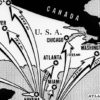
The road to possible nuclear Armageddon has been littered with lost opportunities for peaceful co-existence with Russia and signposted by repeated U.S. provocations, but Ukraine’s neutrality remains key to everyone’s security, writes Edward Lozansky.
Read more →
